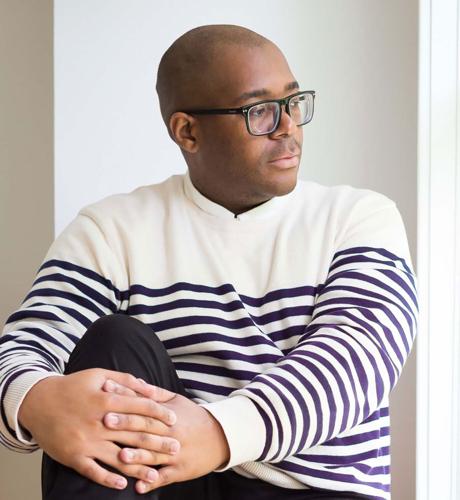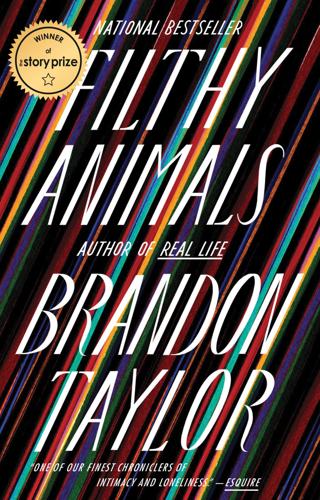
Brandon Taylor, the Alabama-born writer whose 2020 debut novel Real Life was a finalist for the Booker Prize, tries to avoid setting his stories in the South. “I didn’t feel like I could write about the South because I was too close to it,” he says. “When you’re too close, you can’t really see it.” The Midwest — particularly Iowa and Wisconsin — has served as the primary milieu for his characters.
His bestselling book of short stories Filthy Animals won the 2021/22 Story Prize and has just been released in paperback. His forthcoming novel, The Late Americans, will be published in 2023. Taylor is an editor-at-large at The Sewanee Review, and he writes critical essays on his Substack, sweater weather. He currently lives in New York City.
Taylor answered questions by phone.
You grew up in Alabama. You’ve lived in the Midwest, and now you’re in New York City. Is there a region you feel has shaped you the most?
I didn’t feel like I could write about the South because I was too close to it. When you’re too close, you can’t really see it. Whenever I would try to write about a character in the South, I would feel kind of paralyzed by all the things that I knew. I would feel like I was constantly getting something wrong when I tried to write about the South. So I started writing about the Midwest. I write about the Midwest a lot because I know a lot about that as a setting, but I think spiritually, and maybe psychically, my characters feel quite Southern to me.
I feel like a lot of my characters, even though they’re in the Midwest, they’re often displaced to the Midwest. I was there as an outsider and a quintessential observer. It’s where I learned to write real stories, in a sense.
Your book opens with an epigraph from the Gospel of John. What role has the Bible played in your life?
I grew up in a really religious Baptist family. One of my uncles collected Bibles, and during the summer one of his means of keeping me busy was having me copy down passages for him. We had all these different Bibles and religious texts around the house. We went to church every Sunday. I went to vacation Bible school. I grew up reading the Bible and singing hymns.
My characters are often beset by a childhood faith that haunts them and follows them for the rest of their lives. They can never quite escape that first essential education in the ways and words of God. The Bible has always been there haunting me in ways interesting, good and bad.
Many of your stories portray white characters seen from the perspective of nonwhite characters, which can be quite revealing for white readers. One of your stories reads, “White people had a vast hunger for the calamities of others.” Have you had responses from white readers who felt they had never had that kind of self-reflection before?
Oftentimes that is one of the more common responses I get in my work. People are often shocked at that.
They realize the extent they have been assuming a white centrality in literature. They’ll read one of my stories and say, “This felt very familiar to me, and then I found out the character was Black and I had been assuming the character was white.” We all come to books and stories with assumptions. I think the really best stories illuminate those assumptions to us in ways that are illustrative, instructive and hopefully moving and instructive, and not too destructive. It can be disorienting for readers.
As a Black writer, is writing white characters a challenge at all?

My answer to this has evolved. Earlier in my writing life, I would have been like, “Yes, of course, I’ve lived with a white overculture my whole life.” I understand white people very well because I’ve been bombarded with stories told from a white point of view. But as I’ve matured as a writer and as a person, what I’ve realized about my own writing — and art in general — is where I start from, regardless of whatever affinities I have or do not have for the character, I always start from a place of ignorance with a character. What I try to do is understand who they are, what motivates them, what moves them, what they’re afraid of, what they need. I try to understand their lives. Regardless of whatever I think I understand about that character, I always assume that I know nothing. I try not to make assumptions, and I make my way through.
A lot of my writing is guess and check, as we used to say in science. A lot of it is trying to be sensitive and emphatic and curious about people’s lives and trying to portray a living, breathing person on the page. That job is hard enough. Am I affording this character a full, robust humanity? Am I being cliché? Am I doing my job, which is ultimately to honor this character’s life? It’s a lot of asking myself really uncomfortable questions and trying to interrogate my own biases and blind spots. For me the best way to do that is to make no assumptions at the onset.
You’ve gotten into film photography lately and seem to really embrace analog products. When you shift to analog, does that change the way you think versus being online?
I feel like I moved to New York and went full analog. I went even further into film photography, I bought a new record player, and I got into fountain pens.
I got into film photography because I was going through this intense period of writer’s block and had this novel that I just wasn’t able to get going. I was so miserable. I thought, what if I never write again? I need to be OK with that. I would need something else to do with my life. I had always wanted to try film photography, but I never thought that I was a person who would be able to figure it out. It was so nice to be not tethered to instant feedback. I was learning a new skill and had permission to be bad at it for as long as I wanted to. I had no ego attached at all. I was teaching myself everything I could learn about photography. It was just really nice to be able to go out for three hours in Iowa City and take pictures. To escape the dread of never being able to write again.
What can you share about your next book, The Late Americans?
The Late Americans is a part of what I call my Midwestern quartet. My first four books are either set in Madison or Iowa City, and they alternate between the two. It’s a novel about a group of people in a year in Iowa City. It’s kind of like a relay among all these different characters. The book opens with a poet, and very quickly from there we encounter a guy who works in a meatpacking plant, a woman who gives swim lessons, dancers, artists and an amateur pornographer.
Hopefully the book speaks to some of the absurdities of trying to figure out who you are and what you want in this wacky age of ours.
To read an extended version of this interview — and more local book coverage — please visit Chapter16.org, an online publication of Humanities Tennessee.






